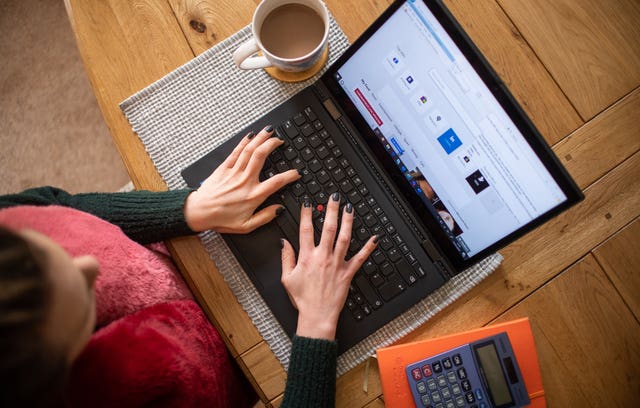
Ben Kentish 10pm - 1am
22 September 2020, 11:24

Dr Christine Grant, from Coventry University, said there needed to be a balance when home-working to avoid burn-out
Avoiding the office to halt the spread of coronavirus is likely to be characterised by “over-working” at home, with 60-hour weeks “the norm” in many cases, an expert has predicted.
Dr Christine Grant, deputy head of the school of psychological, social and behavioural science at Coventry University, said the announcement that people would be encouraged to work from home as Covid-19 cases increase was likely to be met with “mixed” feelings by employees.
She said some would cherish the flexibility, particularly when having to juggle family commitments.
But she said others would be frustrated by the abandonment of Government plans that previously encouraged people back into the office – partly due to the absence of face-to-face human interaction with colleagues, but also due to the instinct to “over-work” from home.
She told the PA news agency: “In some occupations we do over-work anyway, whether you’re in the office or otherwise.
“However, I do think home working at 37.5 hours a week is quite unlikely. Lots of people I have surveyed go up to 60 hours easily, working 12-hour days – it’s almost the norm.
“That survey was before lockdown but I suspect people are doing the same, carrying on.

“I have done a survey recently within my university and it is still indicating that the biggest one issue is the overworking – the workload – and feeling there is no let-up.”
Dr Grant also said there “will be some disappointment” after the Cabinet Office Minister Michael Gove’s confirmation that the Government’s previous call for people to return to the workplace was being dropped.
“We thought we were getting back to a new way of working, a way we could potentially be together and connect with each other,” she said.
“We are going to have to try harder to keep those connections.
“Some people love it (home working) and have found this brilliant, others not so and want it all to end.”
Dr Grant also said it was likely that work chats on video conferencing platforms such as Zoom and Microsoft Teams were likely “here to stay”.
She said: “It certainly feels that way.
“I’m a big fan of technology – it’s incredible, you can have 20 people in a room, we’ve had virtual coffees. But I think the novelty is certainly wearing off.
“It’s about learning to manage these tools rather than them managing us.”
She added: “When it all kicked off I was literally doing six to 10 hours of Zoom meetings back-to-back, -and thinking this is the way I need to operate – people need to ‘see’ me.
“Now I realise I need to put breaks in otherwise I feel really unwell and the next day I’m not very good for much.
“It’s the future, we are going to be doing more of it so we need to get used to it.
“It’s a method of working – we need to manage it. I’m positive about it, but it can become negative and make us ill. It’s like anything – chocolate, whatever – too much of a good thing can make us ill.”